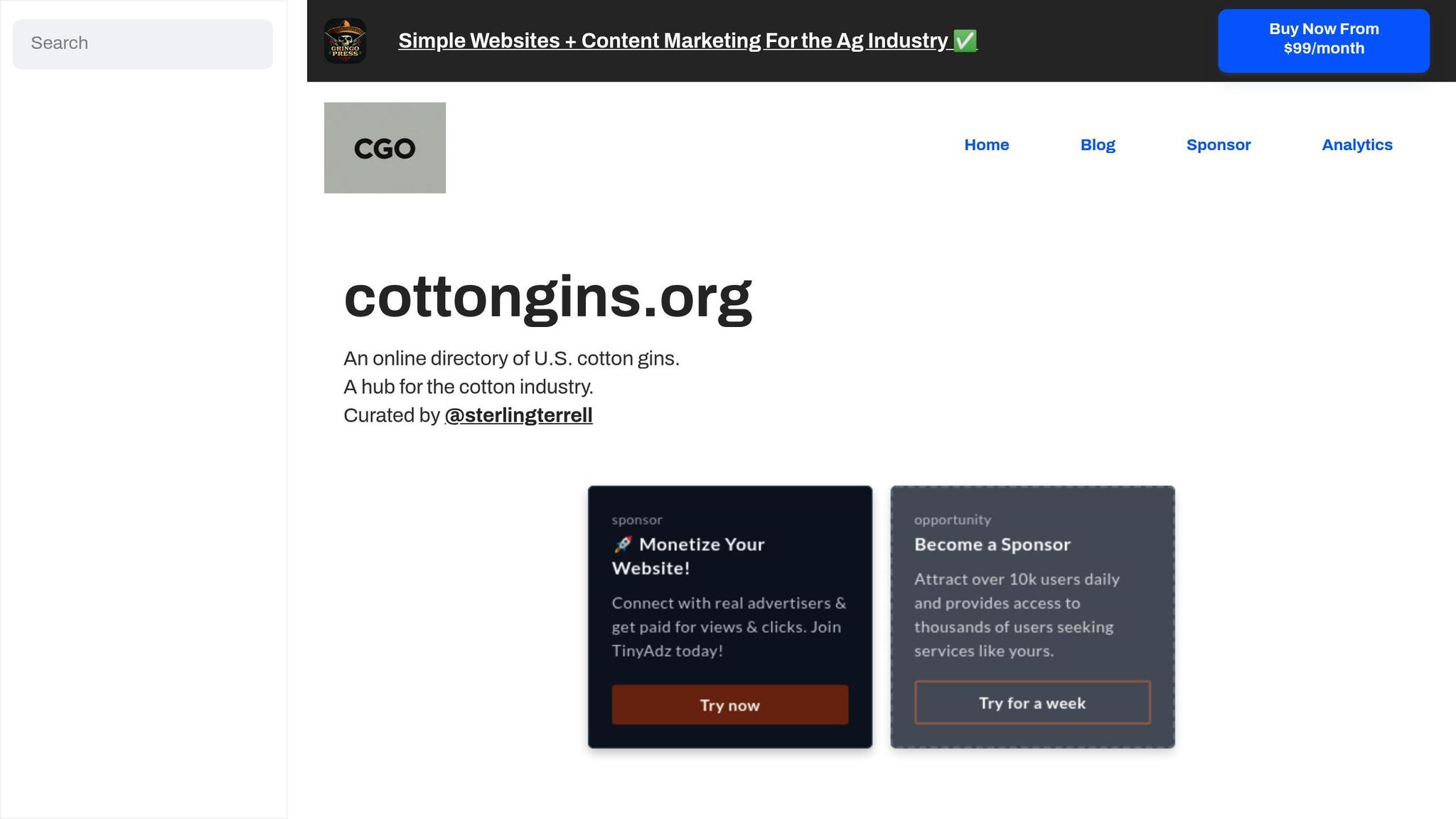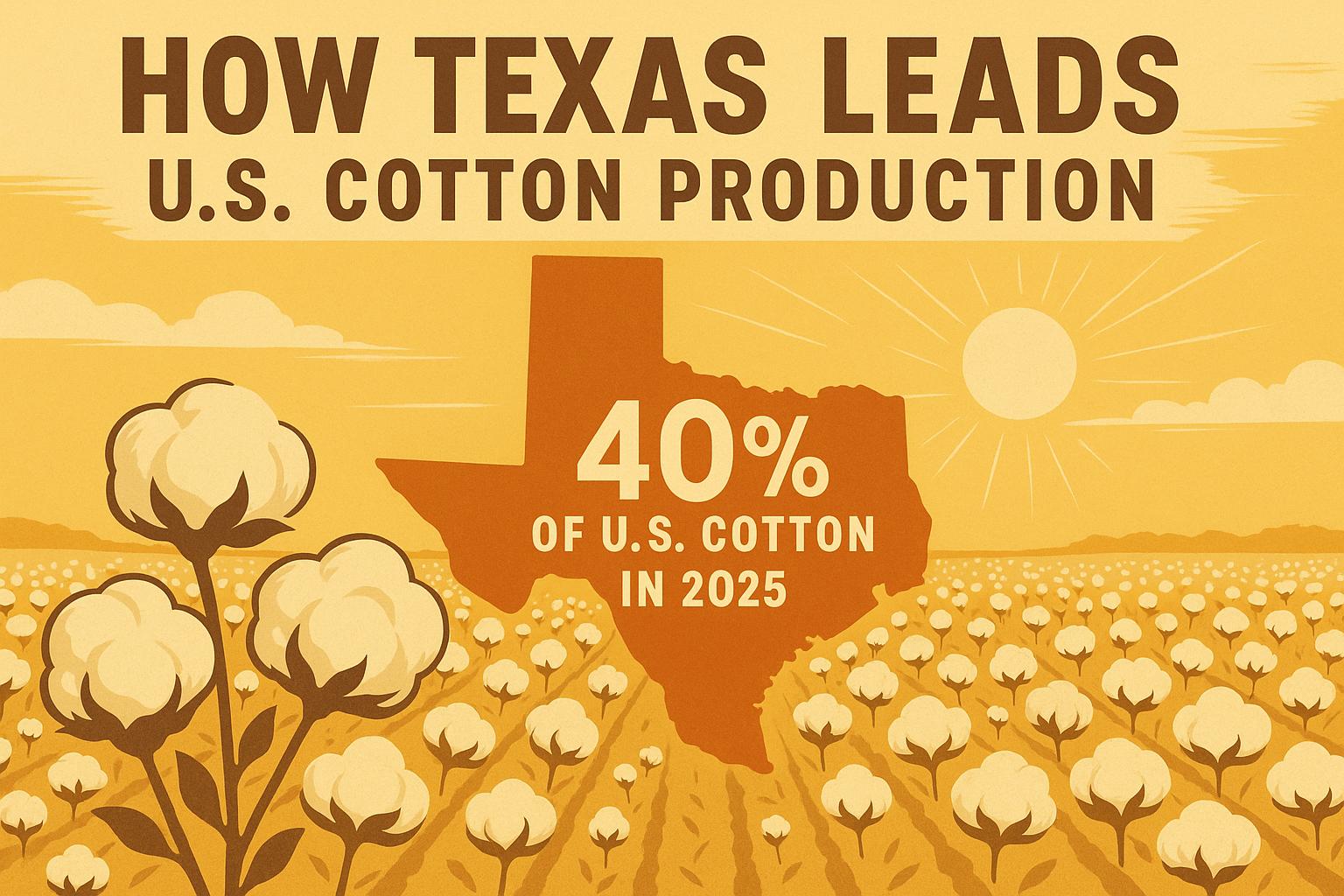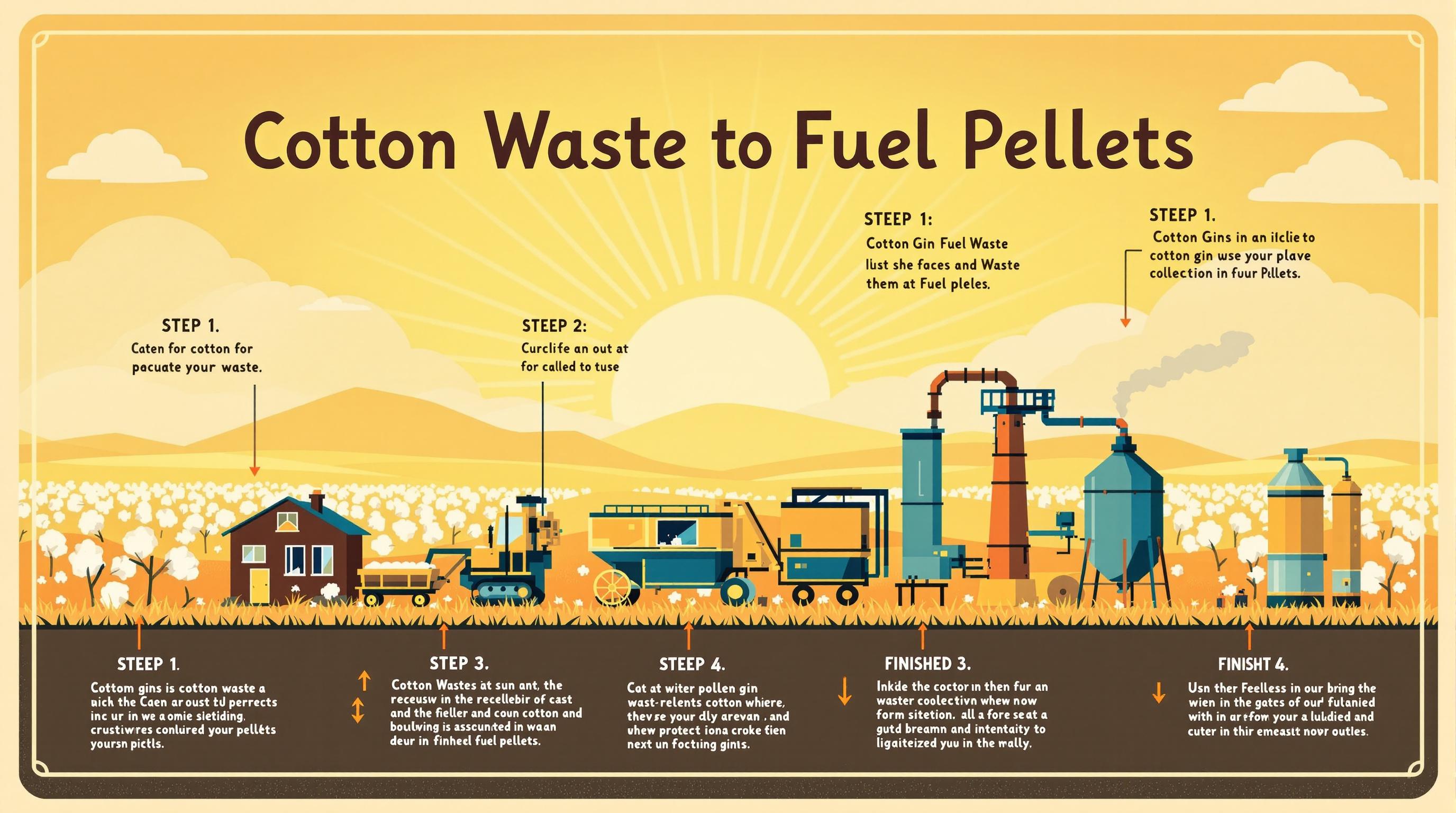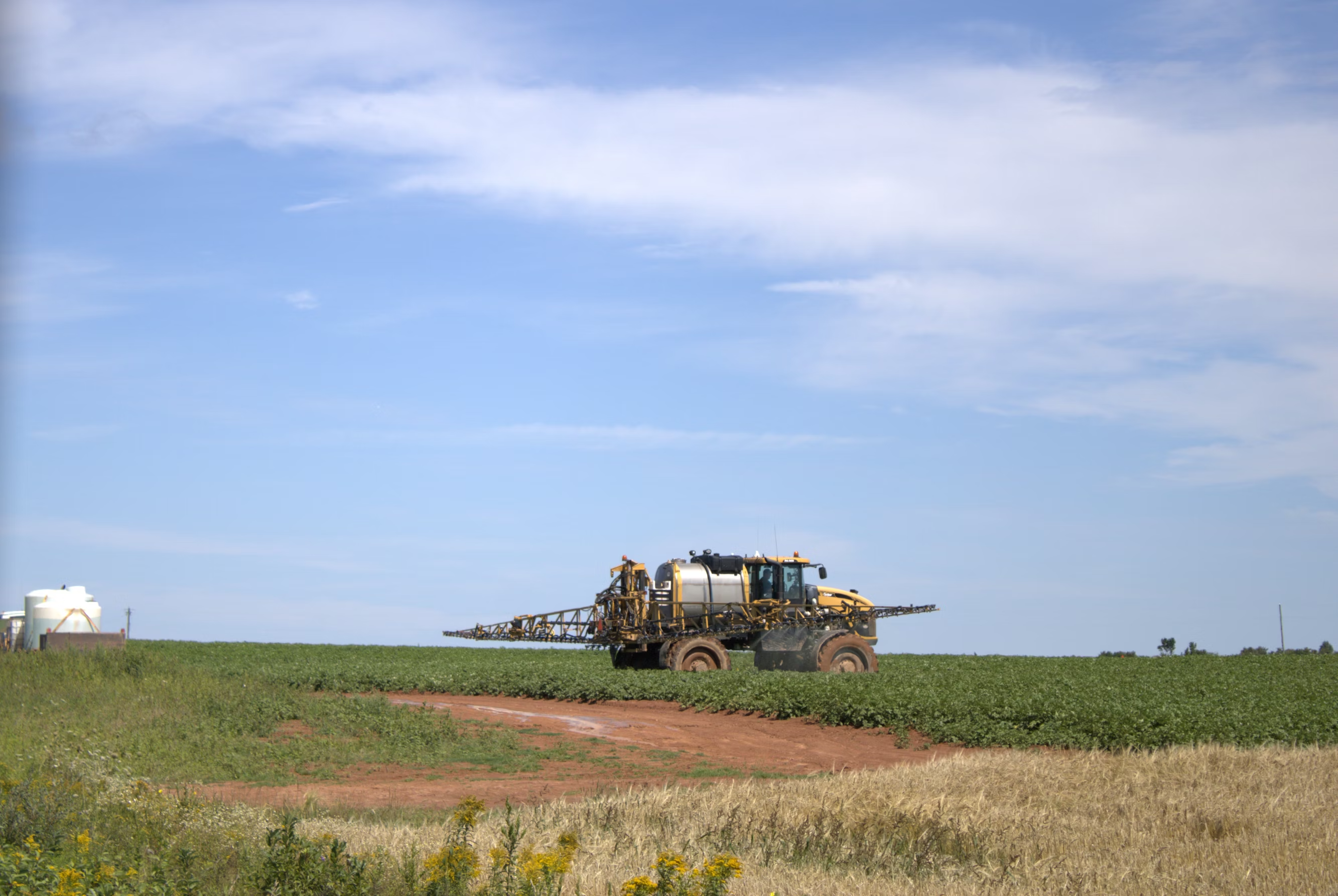Cotton gin operators must comply with state-specific reporting requirements to meet U.S. regulatory standards. Each state has its own forms, deadlines, and submission methods, which are managed by local environmental agencies. Here’s a quick summary:
- Common Forms: Annual emissions reports, production logs, compliance certifications, and environmental assessments.
- Submission Methods: Many states now offer online portals, though email and paper submissions may still be accepted.
- Key Agencies: For example, Texas uses the Texas Commission on Environmental Quality (TCEQ), while North Carolina relies on the NC Department of Environmental Quality (NCDEQ).
Stay compliant by:
- Checking state-specific guidelines.
- Submitting forms before deadlines.
- Keeping copies of all submissions.
Use resources like cottongins.org for a state-by-state directory of cotton gin facilities and reporting requirements. Recent updates in 2024 introduced digital submission systems in major states like Texas, North Carolina, and Mississippi, making compliance easier than ever.
Industrial Control Systems - Cotton Gin Master Control
State Reporting Basics
State reporting requirements create the foundation for ensuring local compliance with regulatory standards.
Key State Agencies
State agencies, such as environmental quality departments, oversee cotton gin operations. They establish reporting rules, ensure compliance, and handle documentation. For example:
- In Texas, the Texas Commission on Environmental Quality (TCEQ) manages these responsibilities.
- In North Carolina, the NC Department of Environmental Quality (NCDEQ) takes charge.
These agencies specify the forms and processes required for compliance.
Required Forms
Common forms include:
- Annual Emissions Reports
- Production Documentation
- Equipment Maintenance Logs
- Environmental Impact Assessments
- Compliance Certifications
Check your state’s specific guidelines to ensure you complete all necessary paperwork.
How to Submit Forms
Many states now provide online portals for submitting reports, though email or paper submissions may still be accepted.
- Confirm deadlines and submission instructions with your state agency.
- Submit your forms ahead of time to avoid last-minute issues.
- Keep digital copies of all submissions and any confirmation receipts for your records.
Details on state-specific submission protocols will follow in the next section.
State-by-State Form Guide
Cotton gin reporting rules differ across states, each having its own set of forms and procedures. It’s important for operators to check official state resources to stay up-to-date with the latest requirements.
Texas
In Texas, operators need to register and regularly submit compliance forms through the state’s environmental agency. Forms and online submission options can be found on the agency’s website. Be sure to confirm the most recent requirements directly with state authorities.
North Carolina
North Carolina requires operators to file reports through its environmental quality department. Annual reports and other related documents must be submitted online. Operators should review the department’s website for detailed instructions.
Other Major Cotton-Producing States
States like Georgia, Mississippi, and South Carolina have their own systems for cotton gin reporting. These often include submitting compliance certifications and documenting any operational changes.
For the most accurate information, always refer to the respective state agency’s website. These resources are essential for navigating state-specific reporting processes.
Form Requirements by State
Each state has its own reporting rules, so it's important to check state-specific resources for the most current forms, submission methods, and deadlines. The tips below can help cotton gin operators stay on top of their obligations.
Here’s how operators can stay compliant:
- Keep records up to date: Accurate and organized documentation is key.
- Set reminders: Use a calendar to track important submission deadlines.
- Save submitted forms: Always keep copies of any documents you send in.
- Monitor state agency websites: Regularly check for updates or changes.
Since requirements can differ based on facility size and local regulations, it’s a good idea to contact your state agency directly for the latest information.
sbb-itb-0e617ca
Help and Support
Cotton gin operators should rely on official state and federal sources for the most up-to-date reporting forms and instructions.
Official Resources
Several organizations offer guidance and tools for cotton gin operators:
- Texas agencies: Provide technical support and assistance.
- North Carolina online portals: Offer downloadable forms and clear submission guidelines.
- USDA Cotton Program: Shares information on federal reporting standards.
Additional resources include:
- USDA regional offices
- State cotton industry associations
- Local agricultural extension offices
These resources work alongside the cotton gin directory available on cottongins.org.
cottongins.org Listings

The directory on cottongins.org is a helpful tool for operators looking to confirm local reporting requirements. It includes facility addresses and other essential details to ensure accurate reporting. Users can also submit updates to keep the listings current.
When using cottongins.org for compliance:
- Search by state to find specific reporting guidelines.
- Review county-level listings for localized requirements.
- Double-check facility addresses to ensure reporting accuracy.
2024 Reporting Changes
In 2024, several states upgraded their cotton gin reporting systems by introducing digital submission options, making compliance more efficient. Below are highlights of these recent updates in major cotton-producing states.
Digital Submission Updates
State agricultural departments have rolled out new systems to replace older, manual reporting methods:
- Texas: Introduced a secure online portal for submitting daily production reports.
- North Carolina: Implemented digital forms with automated checks and instant confirmation features.
- Mississippi: Began transitioning to an electronic filing system for cotton gin reports.
To use these updated systems, operators are typically required to:
- Set up secure login credentials.
- Complete a one-time facility verification process.
- File reports through the designated state portal.
- Keep digital copies of submissions for a specified retention period.
These changes aim to simplify the reporting process while ensuring compliance requirements are met.
Summary
Reporting requirements for cotton gin operators differ by state, so it's important to confirm guidelines with your local agricultural department.
Here’s what cotton gin operators should focus on:
- Check state-specific guidelines: Confirm reporting schedules and documentation requirements with your state’s official agency.
- Stay updated: Regularly review state resources for changes in submission procedures to avoid compliance issues.
The website cottongins.org offers a detailed directory of cotton gins across several states, including Alabama, Arkansas, Arizona, California, Florida, Georgia, Louisiana, and Mississippi. This directory includes facility addresses and provides a submission form for adding new entries.
Use this directory and guidance to keep your reporting accurate and up to date.
FAQs
What happens if a cotton gin doesn’t meet state reporting requirements?
Non-compliance with state-specific cotton gin reporting requirements can lead to serious consequences, which may vary depending on the state. Potential outcomes include fines, penalties, or even temporary suspension of operations until requirements are met.
To ensure compliance, it’s important to stay informed about your state’s specific regulations and submit accurate reports on time. Always consult official state resources or regulatory agencies for the most up-to-date information.
How can cotton gin operators stay updated on the latest state reporting forms and requirements?
To stay current with the latest state-specific reporting forms and requirements, cotton gin operators should regularly check official state resources or agencies responsible for agricultural compliance. These sources are the most reliable for accurate and up-to-date information.
Additionally, operators can explore directories like cottongins.org, which may provide helpful insights or references to relevant resources for staying compliant. Staying informed ensures smooth operations and adherence to all applicable regulations.
What are the advantages of using digital systems for cotton gin reporting, and how can operators make the switch?
Switching to digital reporting systems for cotton gins offers several advantages. These systems streamline the submission process, reduce paperwork, and minimize errors by automating data entry. They also ensure faster compliance with state-specific requirements and make it easier to access and update records when needed.
To transition, operators can start by identifying state-approved digital platforms or tools that meet their reporting needs. Training staff on the new system is essential to ensure a smooth adoption. Additionally, operators should back up historical data and maintain a clear timeline for fully phasing out manual processes.


